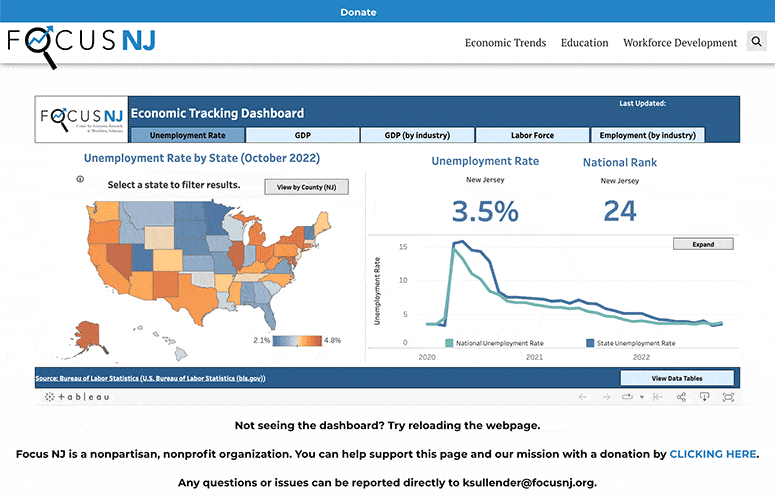
Strategies to Reskill, Reshape and Rehire NJ’s Workforce
On Sep 1, 2021The Education & Workforce Development Taskforce was formed by NJBIA in partnership with Focus NJ as a Phase 3 initiative to expand workforce research to further reflect the new realities in a coronavirus pandemic world.
The taskforce, which is comprised of state leaders from business, industry, academia (K-16), workforce development boards, and state government, will soon release an updated report with recommendations to reskill, reshape and rehire New Jersey’s workforce.
The Education Equation Part 2: Strategies to Reskill, Reshape & Rehire NJ’s Workforce will set forth 18 recommendations in three categories: 1) expanding business, academic and government partnerships, 2) training for current jobs while preparing for the future, and 3) ensuring equitable access to education and workforce development opportunities.
Expand Partnerships. There are many workforce development programs and partnerships focused on upskilling and reskilling. Despite attempts at better collaboration, too many are still operating in silos with little interconnectivity among stakeholders to expand these initiatives statewide. Partnerships between business, academia and government are essential for communicating industry needs and forming a successful “workforce ecosystem” in New Jersey.
Train for Today’s Jobs, Prepare for Tomorrow’s. A robust workforce requires adequate training today and adequate planning for tomorrow by identifying the industries in the future that will employ the most workers and pay the best wages. The technological revolution, accelerated by the pandemic, is continuously changing employer needs. The one constant is that professional development and lifelong learning remain critically important for successful careers.
Ensure Equitable Opportunities. Socio-economic disparities have increased during the pandemic. When workers lack access to transportation, broadband, technology, software, education and childcare, it undermines their career opportunities. This is especially true for first-generation college students, women, minority workers, individuals with disabilities, low-income families, and low- to middle-skill workers. Equitable access to education and career development opportunities is essential for the reskilling, reshaping and rehiring of New Jersey’s workforce.
The report’s recommendations, which will be published later this month, are intended to catalyze efforts to build a sustainable, robust workforce pipeline and ensure New Jersey’s workforce – especially the disadvantaged – has access to education and career development opportunities. After 17 months of workplace turmoil caused by COVID-19, it is critical that we prioritize the need to upgrade employees’ skills and get as many as possible back to work in well-paying jobs.
To access more business news, visit NJB News Now.
Related Articles:





